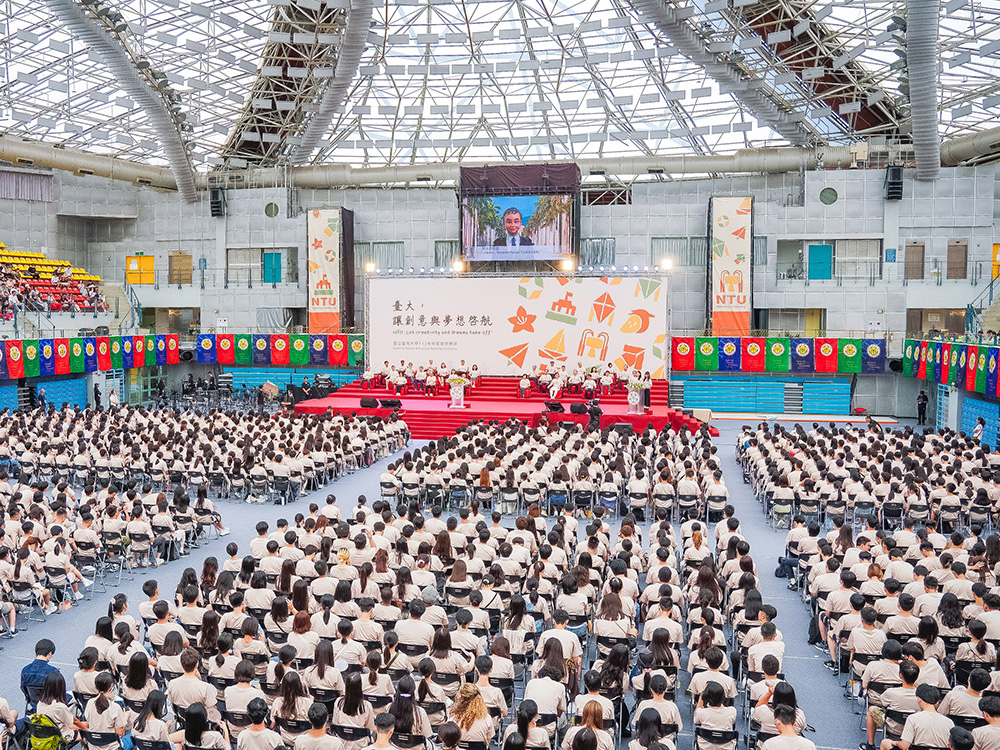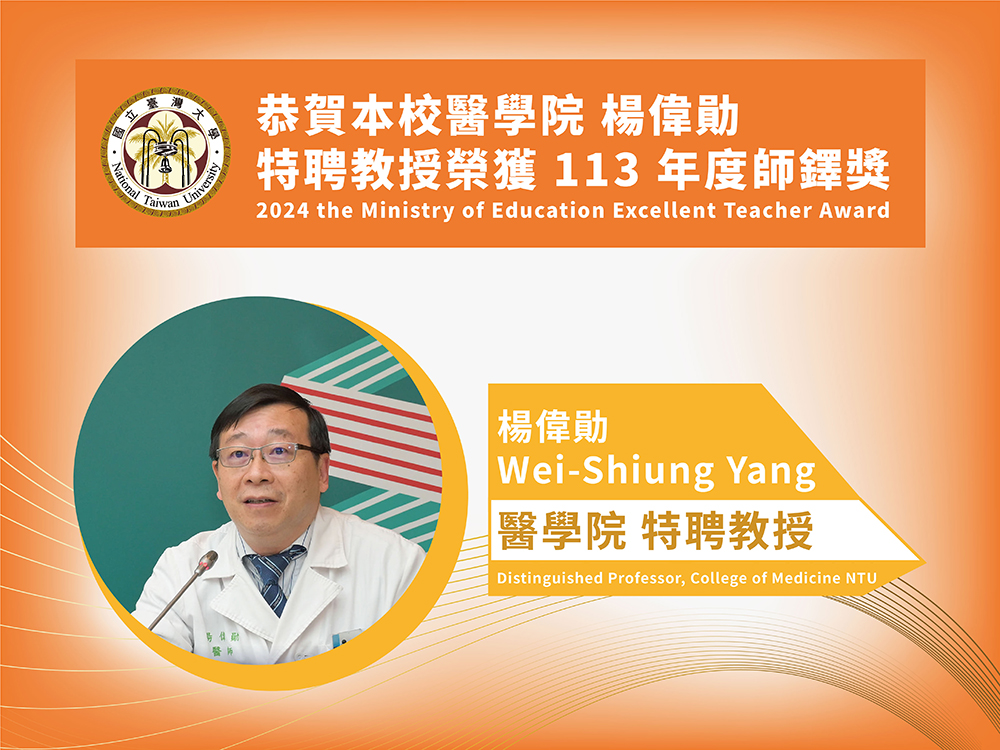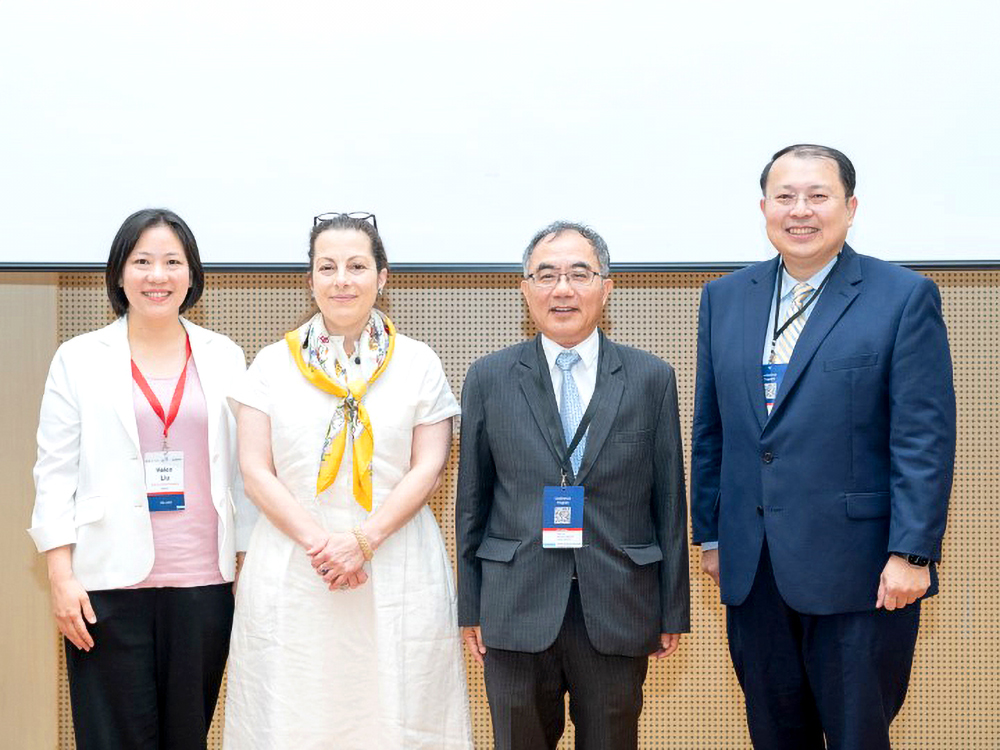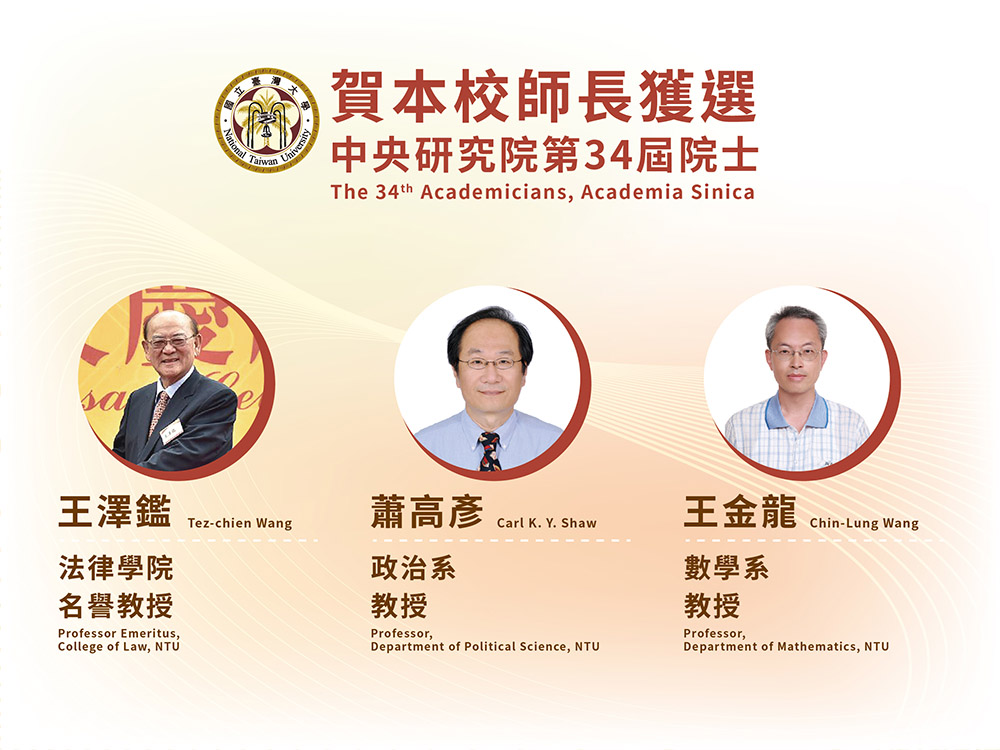
NTU Opening Ceremony: “Where Creativity and Dreams Take Flight”
瀏覽器版本過舊,或未開啟 javascript
請更新瀏覽器或啟用 javascript
Spotlights
National Taiwan University Statement.
In accordance with the resolution of the ad hoc motion in the 2nd University Council of the 2nd semester, Academic Year 2022-23, due to a lack of understanding among some students regarding the system for ensuring the guaranteed admissions of indigenous students, certain remarks and actions have caused harm to indigenous students. In response, our University aims to clarify the misunderstandings in this controversy and hereby explains the historical context of the current Regulations for the Guaranteed Admissions and Government-funded Overseas Study Programs of Indigenous Students (原住民學生升學保障及原住民公費留學辦法) (hereinafter referred to as the Regulations).
In 1952, the National Government of the Republic of China implemented the “Shandi Pingdihua Policy” (山地平地化政策, make the mountains like the plains) which has an assimilation intent, and, in the Taiwan Provincial Report on the Status of Mountain Education, Volume 1 (臺灣省山地教育實況調查報告書第一期), displayed bias by considering the need to “diagnose and treat the three major symptoms of ‘poverty,’ ‘ignorance,’ and ‘weakness’ suffered by the ‘mountain compatriots (山胞)’” and asserting that the “knowledge deficiency of the ‘mountain compatriots’ and their closed-off environment... is a factor sufficient to impede the development of mountain education.” Therefore, the Ministry of Education implemented the Academic Bonus Points Policy (升學優待加分政策) under the applicable Border Student Preferential Treatment Measures (邊疆學生優待辦法) to allow indigenous peoples to enter the educational system, which was predominantly Han Chinese. In 1994, due to the long-standing efforts of the indigenous peoples’ identity movement, the government finally renamed “mountain compatriots” as “indigenous peoples” and enshrined “indigenous peoples” in the constitution in 1997, guaranteeing the collective rights of indigenous peoples.
In 1998, the Education Act for Indigenous Peoples (原住民族教育法) was passed, which explicitly required the protection of indigenous education and the promotion of indigenous development. After amending the Regulations in 2006, indigenous students were admitted through the “additional quota” system, which stipulated that the original admission quotas for each school, department, and graduate institute remained unchanged, and an additional 2% of indigenous students would be admitted for those who obtained proof of indigenous cultural and language proficiency.
It is important to emphasize that this system does not result in the exclusion of educational resources or affect the admission quotas of non-indigenous students. In recent years, in order to promote multicultural awareness, the “preferential” admission policy in the Regulations has been transformed into a “guaranteed” admission policy, aiming to reverse the socio-economic status of indigenous peoples and promote their collective rights. The policy also encourages indigenous students to serve indigenous peoples after graduation and implements affirmative action measures.
National Taiwan University firmly believes that the scope of university education goes beyond mere professional knowledge and emphasizes the cultivation of humanistic qualities, human rights education, and the realization of indigenous rights. Article 2, Section 2 of the Education Act for Indigenous Peoples states: “The government shall promote indigenous education based on the principles of diversity, equality, autonomy, and respect.” In line with this, National Taiwan University established the Indigenous Students Resource Center (hereinafter referred to the Center, 原住民族學生資源中心) in 2013 and the National Taiwan University Indigenous Students Resource Center Advisory Committee (國立臺灣大學原住民族學生資源中心諮議委員會) in 2016, which currently consists of seven advisory committee members. They provide guidance and suggestions for promoting “education for all with indigenous perspectives” within the University.
Additionally, an independent office for the Center was established in 2022, creating a support network for indigenous students and gradually improving counseling and learning environments for indigenous students on campus. Currently, there are a total of 324 indigenous students and 32 indigenous faculty and staff members at the University, including two full-time teachers and 30 staff members. The director of the Center and two full-time research assistants have indigenous backgrounds, and one student counselor at the Center for Student Well-Being also has an indigenous background and is responsible for assisting indigenous students with their specific needs. In terms of scholarships, various programs are available for indigenous students, including the “Dream Field Comprehensive Support Program (夢田深耕計畫),” tuition and fee waivers, scholarships for students from disadvantaged backgrounds, scholarships for living and learning expenses, subsidies for off-campus accommodation rent provided by the Ministry of Education, scholarships established by the University, and endowed scholarships. These programs have supported thousands of indigenous students in the 2022 academic year. Furthermore, on June 3, 2023, the University Council approved the establishment of a task force (工作小組) for ethnic equality. We look forward to eliminating any occurrence of campus ethnic discrimination through the establishment of institutional arrangements and will actively promote courses and activities to enhance cultural sensitivity among the NTU faculty, staff, and students towards indigenous cultures, realizing the vision of a harmonious and inclusive campus environment for all ethnic groups at our University.
*In cases where there are no official English translations for specific terms, a literal translation approach is used.

NTU Opening Ceremony: “Where Creativity and Dreams Take Flight”

Prof. Wei-Shiung Yang wins MOE National Excellent Teacher Award

NTU College of Public Health's Global Health Program Joins the Association of Schools of Public Health in the European Region

NTU hosts a successful dg.o 2024

Congratulations to NTU faculty members elected as 34th AS academicians
Current Spotlights